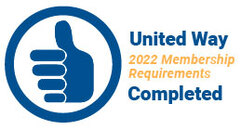|
There are many underlying factors that increase vulnerability to addiction. Childhood trauma, genetic factors, experimentation with drugs, medical conditions, style of coping skills, impulsivity, a desire to escape difficulties in life are a few factors that can contribute to addiction. In addition, mental health issues and addiction often go hand in hand. These underlying factors must be addressed to attain lifelong recovery.
For some people, addiction is a way of coping with the difficulties of life. Addiction fills an emptiness and helps them escape sadness or anxiety. The Anxiety and Depression Association of America reports about 20 percent of substance abusers have an anxiety disorder or a mood disorder, such as depression. https://adaa.org/understanding-anxiety/related-illnesses/substance-abuse For many, drug use starts with youthful experimentation. This can stem from peer pressure curiosity about what it’s like to be high. The earlier people begin experimenting, the more likely they are to have life-long issues with substance abuse. One dose of opioids before the age of fifteen, makes a person five times more likely to abuse drugs. https://osepideasthatwork.org/sites/default/files/IDEAslIssBrief-Opioids-508.pdf According to the website addictionsandrecovery.org, you are eight times as likely to be an addict if one of your parents was an addict. Merely growing up in a household where drug abuse takes place — even in the absence of addiction — can have the same effects. https://pubs.niaaa.nih.gov/publications/arh312/111-118.htm Childhood trauma is often associated with substance use. The CDC’s Adverse Childhood Experiences Study (ACE Study) uncovered a stunning link between childhood trauma and the chronic diseases people develop as adults, as well as substance abuse and mental health issues. ACE risk factors include: Abuse: physical, emotional or sexual; Neglect: physical or emotional; and Household Dysfunction: mental illness, mother treated violently, divorce, incarcerated relative or substance abuse. There are forty long term health consequences related to having three or more ACE events in childhood including heart disease, lung cancer, diabetes and autoimmune diseases, as well as mental health issues, violence, being a victim of violence, suicide and substance abuse. High ACE scores are also correlated with limited opportunities for education, employment and income. As ACE scores increase, so does the risk of disease, social and emotional problems. Early trauma has a lasting impact, including setting the person on a trajectory to substance abuse. https://www.cdc.gov/violenceprevention/childabuseandneglect/acestudy/index.html For many Americans, drug use starts with a prescription. Opioids are notorious for their addictive properties and many people don’t realize their pain pills are actually opioids. Four out of five heroin users started with prescription drugs. https://www.drugabuse.gov Treatment of substance abuse is complex and far reaching. Even more complicated than the physical issues of addiction are the underlying factors and causes. Next time we will discuss detox, the beginning of treatment.
0 Comments
Your comment will be posted after it is approved.
Leave a Reply. |
AuthorLynn Saylor is the AmeriCorps member working with the United Against Opioid Abuse Initiative alongside the White County United Way. She is a major facilitator of the United Council on Opioids serving White County and a regular contributor to local media. Archives
October 2020
Categories
All
|

 RSS Feed
RSS Feed
